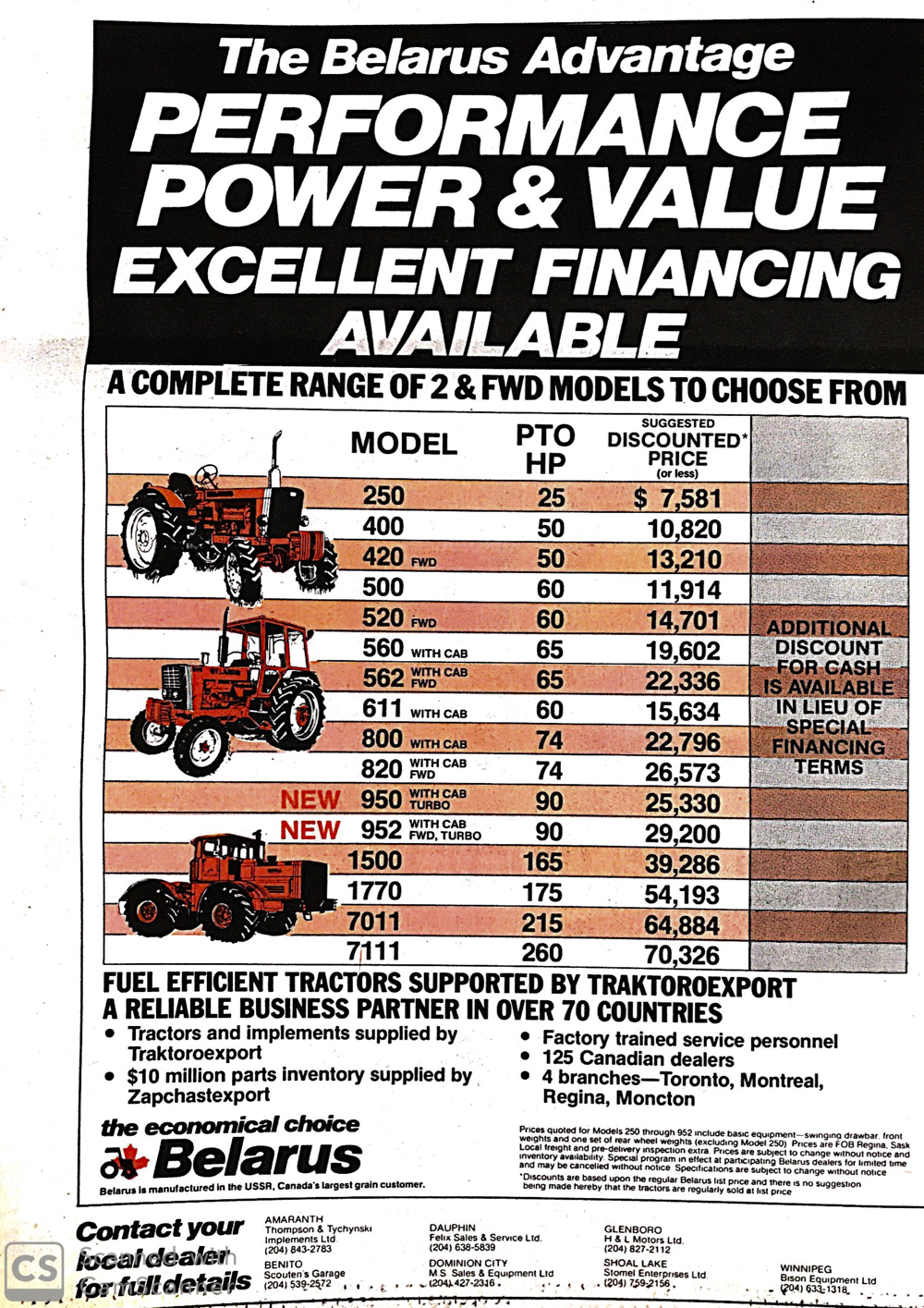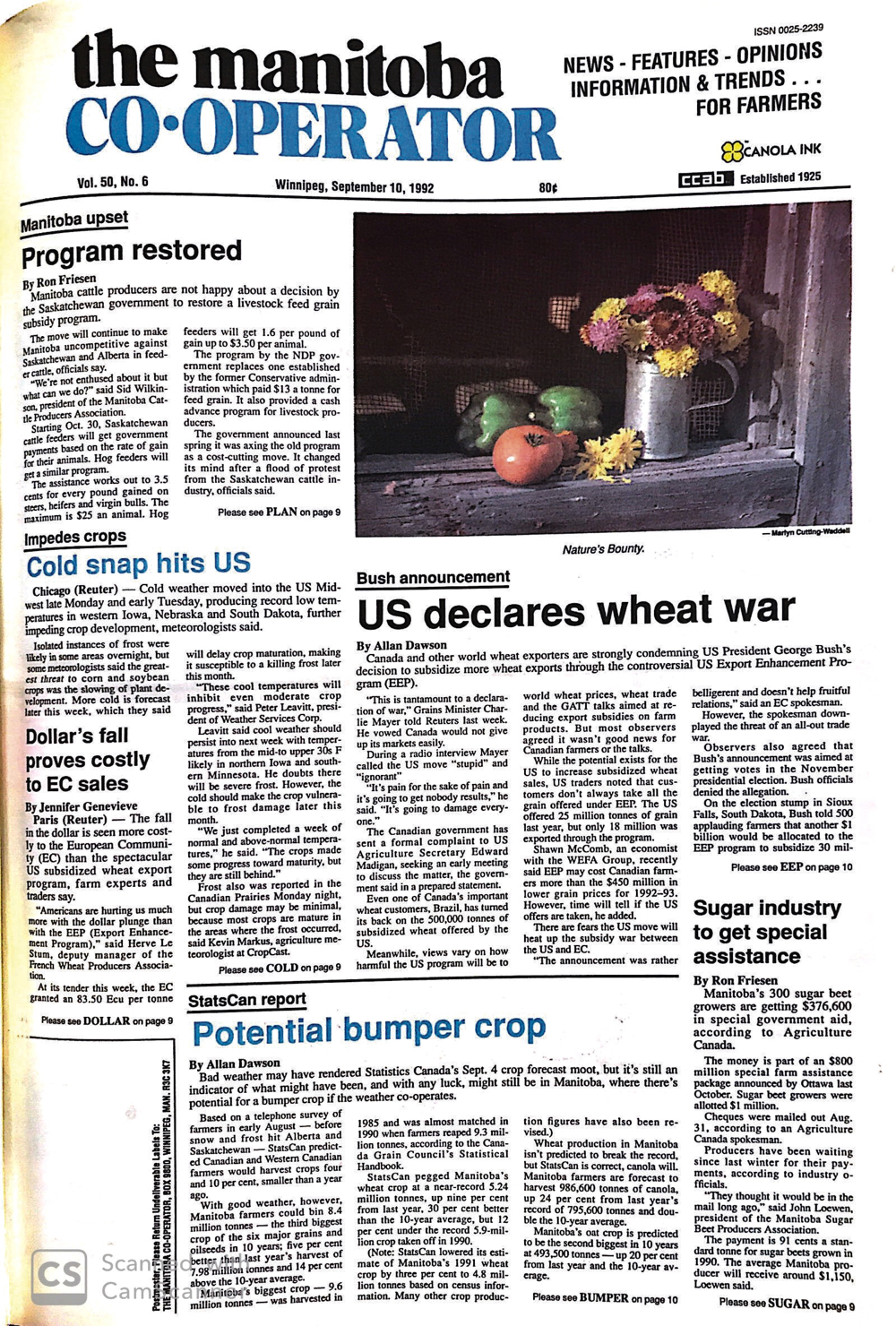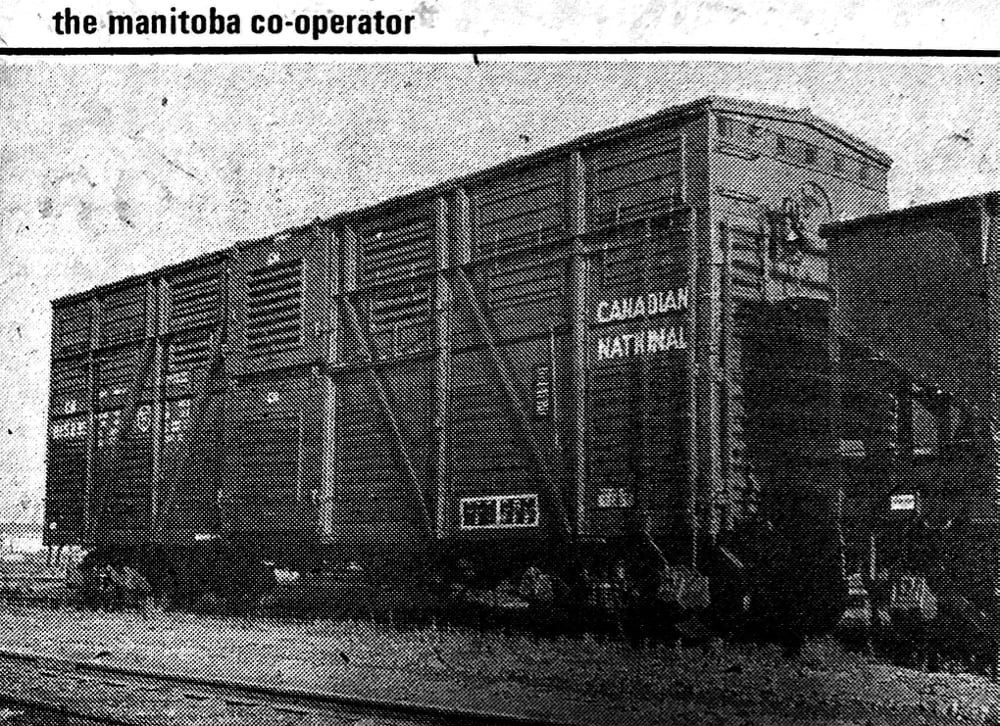This ad by the Winnipeg Commodity Exchange in our November 22, 1973 issue encouraged farmers not to vote for rapeseed to be put under control of the Canadian Wheat Board in an upcoming plebiscite. The results were 52.7 per cent of keeping the open market, 46.2 per cent for CWB control and 1.1 per cent undecided.
In contrast to last week’s history item from 1959, when there was a call to reduce grain production, there was a tight market if not a shortage in 1973, when wheat prices were headed to the highest real levels in history. The U.S. was reported to be oversold after the Soviet “Great Grain Robbery” the previous year. Speaking to an international meeting in Rome, Agriculture Minister Eugene Whelan said Canada would give tentative support to a world food security plan, but was wary of stock-holding programs because Canada in the past had to carry approximately 40 per cent of the world wheat surplus.
Read Also

Steam engines alive and well in Manitoba
Next generation of Manitobans get hands-on history lesson at steam engine “Steam School”
In the House of Commons, Wheat Board Minister Otto Lang rejected the idea of a mandatory federal co-ordinator to direct the railways on how to allocate grain cars. The suggestion had been put forward by MP and former prime minister John Diefenbaker, who accused the railways of treating requests for cars with “supercilious contempt.”
Rail cars weren’t the only things in short supply. North America was in the midst of an energy crisis and Energy Minister Donald MacDonald was encouraging voluntary consumption restraint, without which the government would be forced to impose harsh measures.

















